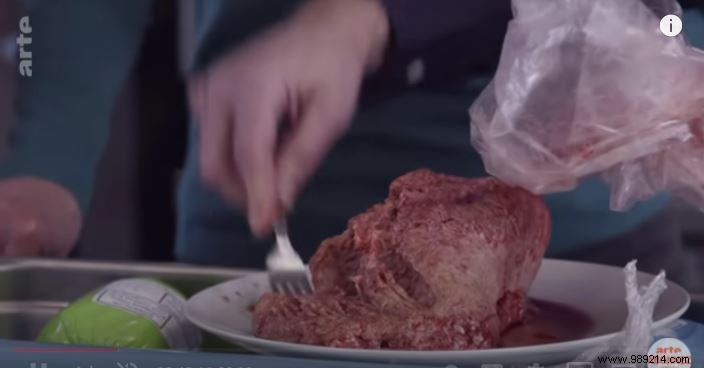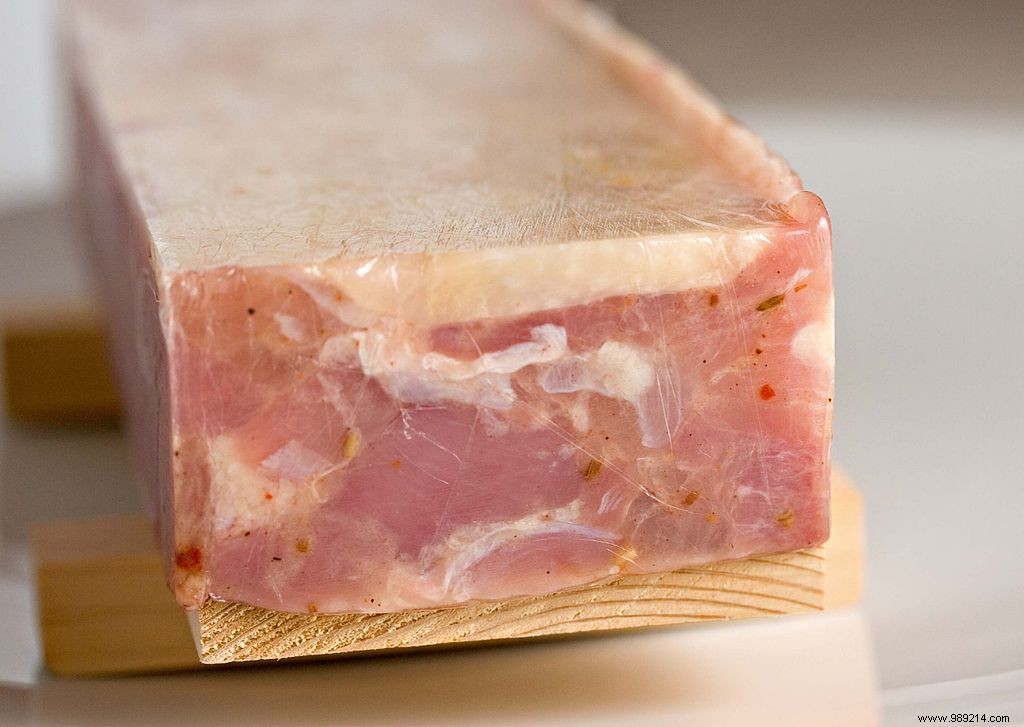The documentary entitled " La Grande Malbouffe ", broadcast on Arte in early February, teaches us a lot about the practices of major brands in the food industry. In order to reduce costs and increase their margins, they are developing treasures of ingenuity… To the detriment of our health. A look back at the content of this edifying documentary and at these practices.
The classic cordon bleu recipe only requires 5 ingredients:a turkey or chicken fillet, bacon, cheese, breadcrumbs, and an egg to bind it all together . The documentary informs us however that in the industry, the number of these ingredients increases from 5… to 30. In question, the use of additives.

With the objective of decreasing costs to increase their margin, quantity and quality of meat are greatly reduced. Thus, exit the fillets of turkeys or chickens, make way for meat preparations . The meat components are agglomerated and reconstituted. To hold everything together, and give it a meaty appearance, additives are incorporated such as wheat fiber to provide resistance. However, no muscle fibers are present in the final result. A drop in cost implies a huge drop in quality.
In some European countries, some low cost brands use MSV:mechanically separated meat . This is end-of-line meat. Anything left over when the carcasses are discarded is reused to make a mash. As you will have understood, VSM no longer has much to do with meat. It is also prohibited for use in France.
The cordon bleu cheese is not to be outdone. It too has additives, including melting salt . This is what allows the cheese to shine and have that elastic texture. It would potentially increase cardiovascular risks.
Among all the additives used in the food industry, there is one that has recently come under the spotlight:E171 or titanium dioxide . In France, it has been banned since 2020. E171 is mainly used in the production of sweets. It is what gives chewing gum their beautiful patina . However, we also find it in paint, or sunscreens.
Titanium dioxide would be potentially dangerous to health , because it contains nanoparticles. Extremely small, they slip inside the tissues of the human body, pass into the blood, before accumulating in our organs. Tests on rats have been carried out. After 100 days of feeding E171, some of them had developed precancerous lesions.
But the potential dangers are not limited to E17. They extend to all additives. Even if individually, 330 are authorized in France, the mixtures of additives between them could have devastating effects on our health.
Did you know that a fruit juice like pineapple tends to foam? That's what happens when you squeeze it home. On the other hand, when you buy it in supermarkets, there is no foam when you pour it into a glass. This feat is made possible thanks to the addition of a technological aid , an anti-foaming agent in this case.
A processing aid is a substance , not categorized as a food ingredient, which is involved in the preparation or processing of the product. Officially, no trace in the final product. As a result, no mention is made of it in the product description. They therefore escape the rules of mention, but also of control.

And these technological aids are everywhere. We can cite transglutaminase (TG) , also known as "meat sticks" . It is an enzyme that can join two products containing proteins. It allows you to reconstitute pieces of meat from completely different pieces. This is what makes it possible to achieve performances such as sausages without casings or combinations of different meats (beef and chicken).